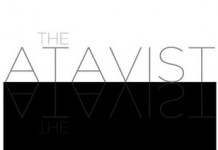 It’s the tale of William Tell, albeit backwards… the former hero seems to be intent on shooting the fruit from off his own head, without real provocation. Apparently Steve Jobs’ beloved devices the iPad and iPhone–which embody (for many) the culmination of free thought marrying free enterprise—are about to be severely limited, as far as apps go. The June 30th deadline looms for app makers to meet the stringent new guidelines for being allowed on iDevices, where no apps will be permitted that harbors a “buy here” button which takes consumers to a site Apple doesn’t own. While folks have stewed over this for months with arguments pro and con (mostly con) on how this “limits the spirit of the internet”, it actually limits a whole lot more: eCommerce.
It’s the tale of William Tell, albeit backwards… the former hero seems to be intent on shooting the fruit from off his own head, without real provocation. Apparently Steve Jobs’ beloved devices the iPad and iPhone–which embody (for many) the culmination of free thought marrying free enterprise—are about to be severely limited, as far as apps go. The June 30th deadline looms for app makers to meet the stringent new guidelines for being allowed on iDevices, where no apps will be permitted that harbors a “buy here” button which takes consumers to a site Apple doesn’t own. While folks have stewed over this for months with arguments pro and con (mostly con) on how this “limits the spirit of the internet”, it actually limits a whole lot more: eCommerce.
According to the hundreds of polls and queries I’ve run over the last two years, and all the feedback from my various articles, the Kindle app for iPad/desktop/laptop is one of the most favored ways to read eBooks, and the Kindle store is one of the most popular places to buy them. Now, I understand Apple wanting to protect their own interests–to a point–but, if in doing so you alienate half of your consumer base, then perhaps it wise to retreat back to one’s own territory and design a fancy new toy instead. Apple’s magic has always been innovation, but this move smacks of a Scrooge-like pot-shot at Amazon, which will likely backfire as consumers return in droves to laptops in order to enjoy the consumer freedoms they once had… namely buying what they want, when they want from where they want.
I’ve been watching the myriad discussions online on this very topic and gauging Apple’s reaction, or lack thereof. I’d hoped (as many folks did) that the tech giant would simply issue a late ‘April Fool’ press release and go back to the way things were before. The whole point to striving for a symbiotic-type relationship between devices and digital literature is for the propagation of sales; this move by Apple appears to be choking that flow off, which makes no sense whatsoever to me. As an indie eBook writer and seller this means that my eBooks on various independent apps will no longer sell on iPad/iPhone,being that most of them are not willing to give Apple an extra slice of their already-marginal profits. This, in turn, means that my nearly-ceaseless promotion activities of our various eTitles will skip over iPhone/iPad market completely in favor of promoting less-restrictive platforms.
A limited device loses steam, fast… especially in a slow economic market. I predict that non-apple platforms and non-apple tablet producers will begin making money hand over fist as the iPad loses its luster in the eye of the consumer. A plethora of cheaper, more flexible devices seem to wait in a breathless pack just outside the iPad’s visibility range; these include inexpensive devices with no dedicated eStore, allowing consumers complete autonomy in uploading and reading eBooks. The growing popularity if such eReading devices should give the Apple folks reason to reconsider the new apps policy before June 30th rolls around.


































Who cares. Remove the “buy” button. As long as I can use my iDevices to read books and magazines I do not care if I have to buy beforehand. As long as I can send my “stuff” to my iDevice and then use it on my iDevice I really do not care if the “buy” button is removed. If this happens maybe I will not impulsively buy as much as before.
So, we completely missed Apple backing down on this and loosening the screws a bit last week? Still not perfect but certainly not as apocalyptic as you seem to think.
And no talk about Apple now allowing you to redownload all content purchased from iTunes and the iBookstore ( at least music and books) as part of their new iCloud service ( which you can actually do now with iTunes 10.3 and iOS 4.3 before iCloud launches this fall. ). Thus eliminating one of those anti-Apple feature list bullet points so popular in some quarters.
The new looser rules probably allow Amazon and B&N and Kobo to provide iThing reader apps that don’t link directly to their store. It isn’t as clear about Sony’s (banned) app, because they don’t allow buying from a web browser today.
The real casualties are independent reader app developers, like Bluefire, because they can no longer partner with independent ebook stores to generate revenue.
“Apparently Steve Jobs’ beloved devices the iPad and iPhone–which embody (for many) the culmination of free thought marrying free enterprise—are about to be severely limited, as far as apps go”
So … how many apps, exactly, out of the 300,000 +apps for the iPhone and the 60,000+ apps for the iPad are going to be part of this catastrophic happening ?
Dear dear … one wonders how this company survives at all.
My reading of the source material says plainly that these apps do not have to stop doing what they are doing but ALSO provide a way for Apple users to buy within the app using the iTunes process.
It is very much like being able to choose paying through credit card or using Paypal.
I do not see what the huge issue is. Apple wants to make the user experience in paying for content or extra features “inside an app” cohesive and secure to their users.
You seem to consider that a horrible thing. I consider it making sure the users have greater options..
Teddypig: the credit card commissions are a few percent, not the 30% charged by Apple.
The Agency publishers fix the price and give 30% to the seller. No price variation of any kind is allowed. Since Apple wants 30%, any ebook site that allows buying within its app will send all of its 30% commission to Apple. The new Apple rules allow these apps to avoid paying Apple by disabling all in-app purchases (including links to an external store).
@Teddypig, you forget the discussion from earlier concerning the problems with in-app purchases.
There were additional comments that Apple limits the number of content items to a few thousand, which means you couldn’t offer your entire content library through this method.
Furthermore, any book sales through Apple result in no profit for the seller unless the retailer sells beyond the standard price for the book. I’m not even sure how Agency books could be sold this way.
It is not like the choice between credit card or PayPal. A better comparison, although still flawed, is that this is like the difference between selling on eBay or selling at Best Buy.
Apple’s behavior reminds me of a recent study of how “cool” students at high schools treat their lesser status classmates. It turns out that the genuinely gifted ones, those who are smart, attractive, good at sports, or had wealthy parents, were usually quite kind and considerate to all their classmates. Being secure in what they were, they had no reason to put anyone down. That certainly fits with my high school experience.
But the study also found that there was a Tier 2 cool group who didn’t feel secure in their position. They were the ones who treated other classmates badly, ignoring them or putting them down. Other classmates were seen as threats to their coolness.
That’s the background. Now, don’t forget that during the 1990s, Apple was distinctly not cool. Media pundits vied with one another to predict whether Apple would be bought out or roll belly up. Apple’s recent success are just that, recent. And some of them are based on moves that now seem very silly. Who today wants their computer to look like colored candy? Some Apple coolness isn’t really deep-down cool.
Apple fans will probably hate me for this, but there’s every indication that Apple’s coolness is Tier 2. Despite tens of billions in the bank (in fact, too much for a healthy company) and despite their growing market share, Apple’s executives, including Steve Jobs, don’t feel secure in their coolness. As a result, they have to put down those who seem to be a threat.
Amazon’s Kindle apps are an illustration. They’re popular and Amazon is innovating its ebook system at least twice as fast as Apple. Their apps run on almost every platform. Apple’s iBooks app only runs on iDevices. That means that Amazon, the potentially cooler ebook seller, must suffer a put down. You aren’t to be allowed to buy books from Amazon through your Kindle app or even through a browser link from that app. You’ve got to go through a much clumsier process. Am I the only one who doesn’t seem Apple playing the boy’s restroom bully here? I don’t think so.
Financially, what Apple is trying to do makes no sense. Online bookstores aren’t going to give Apple 30% of retail when their markup is only 30%. They’re going to do no linking and Apple won’t get a penny. But when egos and emotions are considered, what Apple is doing does makes perfect sense. They’re trying to protect their cool factor from a competitor. The Kindle store, already perhaps 6-7 times large than the iBookstore, must be given a put down.
Why would anyone be surprised? Apple has always been about the proprietary, giving up market share to be so.
I have never purchased an Apple product nor will I ever do so.
@Common Sense, have you seen the market share stats for Apple’s iOS devices? They’re not giving up market share, they own the market for touch enabled computing devices. As someone noted recently, “there isn’t a tablet market, there’s only an iPad market”.
The new rules for the app store are a good compromise, Apple saw they couldn’t make their original idea fly and have done the pragmatic thing and changed the rules so the likes of the Kindle and B&N ebook apps can continue to serve their iOS users. I won’t miss the in-app buy button in the Kindle app, I’ve never used it. I always find and buy Kindle books from the Amazon web store via a web browser, either on my Mac or my iPad, same as for print books. I just download and read them using the Kindle app.
However, Apple seem to be betting that booksellers will value the increased exposure and ease of purchasing provided by in-app purchases sufficiently to pay 30% to have access to it. We’ll have to wait and see if this proves correct or not.
+1 David.
Michael Perry – I applaud your succinct and socially-applicable remarks. The financial aspect is what most perplexes me. It is the indie writers (like myself) and smaller eBook-purveying apps that will suffer most, unless one can turn each eBooks into an individual app… an expensive process for most. I shall just skip any mention of the iPlatforms entirely in my daily advertising efforts.
Turning ebooks into apps may not be an alternative. There have been report of book apps being turned down for being book apps. And it is a long-standing rule, too. The just decided to enforce it now to force content onto iBooks.
http://www.the-digital-reader.com/2011/06/08/apple-now-rejecting-ebook-apps-simply-becuase-theyre-ebook-apps/#more-19783
It’s their way or the highway.
A lot of silliness on the topic of Apple’s coolness imho.
Does Amazon allow an iBooks app ? a B&N app ? Does Amazon allow anyone else to sell ANYthing to Kindle users through the Kindle ? Does B&N allow an iBook app ? Do they allow a Kindle app to buy direct from Amazon ?
Felix – selling eBooks as apps is a nonsensical proposition anyway. Who in their right mind is going to buy a plain text eBook in the form of an app ? It will only run on that device, for only as long as that software version is supported, and what would the user do with dozens, maybe hundreds of accumulated eBook apps ? It makes no sense whatsoever, unless they sold them for a dollar and readers just treated them as disposable.
Some folks here appear to think that Apple is in some kind of competition with Amazon. It isn’t. Apple sells Mac computers, hi end smart phones. and tablets. They dominate the market in both mobile devices and in high end laptops.
Amazon sells an eReader device, and they don’t allow anyone else to sell anything through their Kindle.
Apple allows it’s users to read Kindle eBooks as well as it’s own. Does Amazon do that ? Does B&N do that ?
Concocting a mirage of comparison between the two is quite quite silly.
@Howard
“Apple allows it’s users to read Kindle eBooks as well as it’s own. Does Amazon do that ? Does B&N do that ?”
That bit of sophistry would be slightly more convincing if Apple produced a non iOS iBook client. It would be even more convincing if you could produce the rejection emails from either Amazon or B&N to Apple…
@Howard. Please read the post before mine.
I was merely pointing out that bookapps are no longer an option.
I happen to agree with you that doing bookapps for iOS is nonsensical.
In fact, I’ll go you one better and say it is outright reckless for anybody to develop any application for iOS if they do not also develop it for android, blackberry, and wp7.
Apple has shown itself to be a capricious, unreliable, and heavyhanded master to its developer community and content suppliers and those who entrust their corporate well-being to them deserve exacly what they get.
Apple is what it is and they do what they do every time to everybody.
Expecting them to be anything else is reckless wishful thinking.
Jim: So when I pose the question ““Apple allows it’s users to read Kindle eBooks as well as it’s own. Does Amazon do that ? Does B&N do that ?””
The answer is NO. End of.
Felix – the ‘anyway’ at the end of my my first sentence was intended to indicate me rolling in with you. Your comment on Apple isn’t worth a reply.
No Howard, for B&N at least the answer is not ‘No’. B&N has a developer program. The terms, AFAIK, don’t straight out prevent other reading systems. It’s just that Apple has never submitted anything (and has showed no interest in doing so – which is why I was calling you on this argument).
Jim – Did B&N invite developers and other publishers and retailers to submit apps ? Apple did. Did B&N ? Did Amazon ?
Howard – now you are just digging yourself deeper 🙂
First: now you are moving the goalposts – your original statement was ‘allow’ and not ‘invite’.
Second: Even assuming that you are correct about ‘invite’ in the first place (which really does not jibe with my memory of the events), with Apple’s recent statements/changes of the App Store rules, I’m pretty sure that the retailers ( B&N, Amazon, Kobo and Sony especially) currently feel anything but ‘invited’ to have application on the iOS AppStore.
Jim … no I’m not digging at all … 🙂
I recall Steve Jobs launching the iPhone and iPhone developers kit and, in his speech, inviting developers all over the world to start creating ! He inspired this new world of app development by inviting and enabling and allowing … all in one go.
Nothing like this has ever been done by B&N or Amazon. We can play around with words, but no matter which way we look at it Apple is the one that opened up the door to the hundreds of thousands of apps from all kinds of developers, suppliers and services. B&N and Amazon ?
B&N, Amazon et al may well now feel disinclined to place their product in the Apple system. But the truth is they are happy to charge 30% for hosting and process eBooks through their system, yet they expect Apple to do it all for nothing ? Please !
Have a read of this article … it places it all in context and demonstrates Apple’s point of view very well.
http://www.roughlydrafted.com/2011/02/15/does-apple-deserve-a-30-cut-of-itunes-in-app-subscriptions/
I know that I shouldn’t respond, but…
Steve Jobs initially didn’t want developers. Then, when pressured, they release a simple SDK and charged people $99 to even consider developing for the new unknown market. It paid off in hindsight, but it wasn’t like Apple was encouraging people.
B&N announced their own developer program and invited people to write applications for the Nook Color … but I guess that doesn’t count because Apple did it first.
And the 30% charge? They don’t expect Apple to it for nothing. In this case, the hosting and processing is being doing by Amazon and B&N using none of Apple’s infrastructure. What Apple wants is for Amazon and B&N to spend time and effort migrating this process to Apple’s system where Apple will take all of the profit leaving nothing for the book sellers.
Does Apple deserve a cut for delivering content hosted by Apple to customers? Certainly! Does Apple deserve a cut of all profit made when delivering to an iOS device (think web site ad/subscription revenue, AmazonMP3 and Audble content)? That’s debatable. But 30% for simply making the device that people occasionally use? That’s simply wrong.